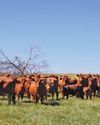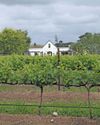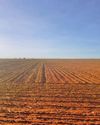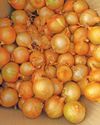
Drought may have led to the Huns becoming raiders in the 5th century, according to researchers. Prior to this, the Huns were animal herders, but extreme drought spells from 430 to 450 CE disrupted the way of life in the Danube frontier provinces of the Eastern Roman Empire, forcing Hunnic people to adopt new strategies to buffer themselves against severe economic challenges.
Susanne Hakenbeck, an associate professor in the Department of Archaeology at the University of Cambridge in the UK, and Prof Ulf Büntgen from the university’s Department of Geography have come to this conclusion after assessing a new tree-ring-based hydroclimate reconstruction, within the context of archaeological and historical evidence.
NEW DATA
The Hunnic incursions into Eastern and Central Europe in the 4th and 5th centuries CE have long been viewed as the crisis that triggered the so-called Great Migrations of barbarian tribes, leading to the fall of the Roman Empire.
However, where the Huns came from and what their impact on the Roman provinces was is actually unclear.
New climate data reconstructed from tree rings by Büntgen and his colleagues provide information about yearly changes in climate over the last 2 000 years. It shows that Hungary experienced unusually dry summers in the 4th and 5th centuries. Hakenbeck and Büntgen point out that climatic fluctuations, in particular drought spells from 420 to 450 CE, would have reduced crop yields and pasture for animals beyond the flood plains of the Danube and Tisza rivers.
Bu hikaye Farmer's Weekly dergisinin Farmer's Weekly 17 February 2023 sayısından alınmıştır.
Start your 7-day Magzter GOLD free trial to access thousands of curated premium stories, and 9,000+ magazines and newspapers.
Already a subscriber ? Giriş Yap
Bu hikaye Farmer's Weekly dergisinin Farmer's Weekly 17 February 2023 sayısından alınmıştır.
Start your 7-day Magzter GOLD free trial to access thousands of curated premium stories, and 9,000+ magazines and newspapers.
Already a subscriber? Giriş Yap

The genetically unique Senepol: ideal for beef production in Southern Africa
Since its arrival in South Africa in 2001, the Senepol has become a strong contender in the country's beef cattle arena. Tiekie Muller, owner of the Nooitgedacht Senepol stud, spoke to Annelie Coleman about how the growing number of Senepol stud breeders underpins the value of the breed under exacting African conditions.

Microwave mango and granadilla cheesecake
This delicious mango fridge tart is so easy to make, perfect when you want a quick yet indulgent dessert (it only takes 25 minutes to whip up). The fruit’s gorgeous colour and fragrance are maximised.

Global outlook for wheat in 2024/25
In its latest estimate, the International Grains Council has adjusted global wheat production for the coming season due to poorer-than-expected harvests in the EU. However, global supplies remain strong, while global consumption is expected to increase to reach about 804 million tons. Janine Ryan reports.

From fallow land to award-winning wines: the Newstead story
Newstead Lund Family Vineyards, a relatively new wine estate, has established itself as one of the best producers of sparkling wine in South Africa. Owners Doug and Sue Lund spoke to Glenneis Kriel about their production philosophy, rise to success, and possible expansion plans.

Fact file of fungal diseases in wheat
Wheat is a significant crop, and like other crops, is susceptible to a range of infections. Here, we provide information on the most important fungal diseases that affect wheat.

Soil preparation for wheat and other cereals
For seed to germinate and plants to grow, soil often needs to be prepared. The manner in which it is done depends on the type of soil, the organic matter and moisture it contains, the crop to be planted, as well as the previous crop that was planted in the field. Magda du Toit spoke to cereal experts and farmers for guidance.

The origin of the Bonsmara
The Breed of the Month for March is the Bonsmara. In this first article, we take a look at the man behind this popular cattle breed, as well as how it was developed.

The Southern Sun Cape Sun hotel is once again a destination of choice
While some of its contemporaries have suffered from inner-city neglect, the Southern Sun Cape Sun hotel has bounced back in elegance and style, writes Brian Berkman.

Age catches up with the Nissan Navara
The Navara line-up was increased last year in Nissan's effort to win back market share. The Citizen's Mark Jones sampled the top-of-the-range Pro-4X to see how the double cab compares with modern bakkies.

Growing onion sets
Bill Kerr discusses what onion sets are, and how and when to produce them to obtain the maximum financial benefit.